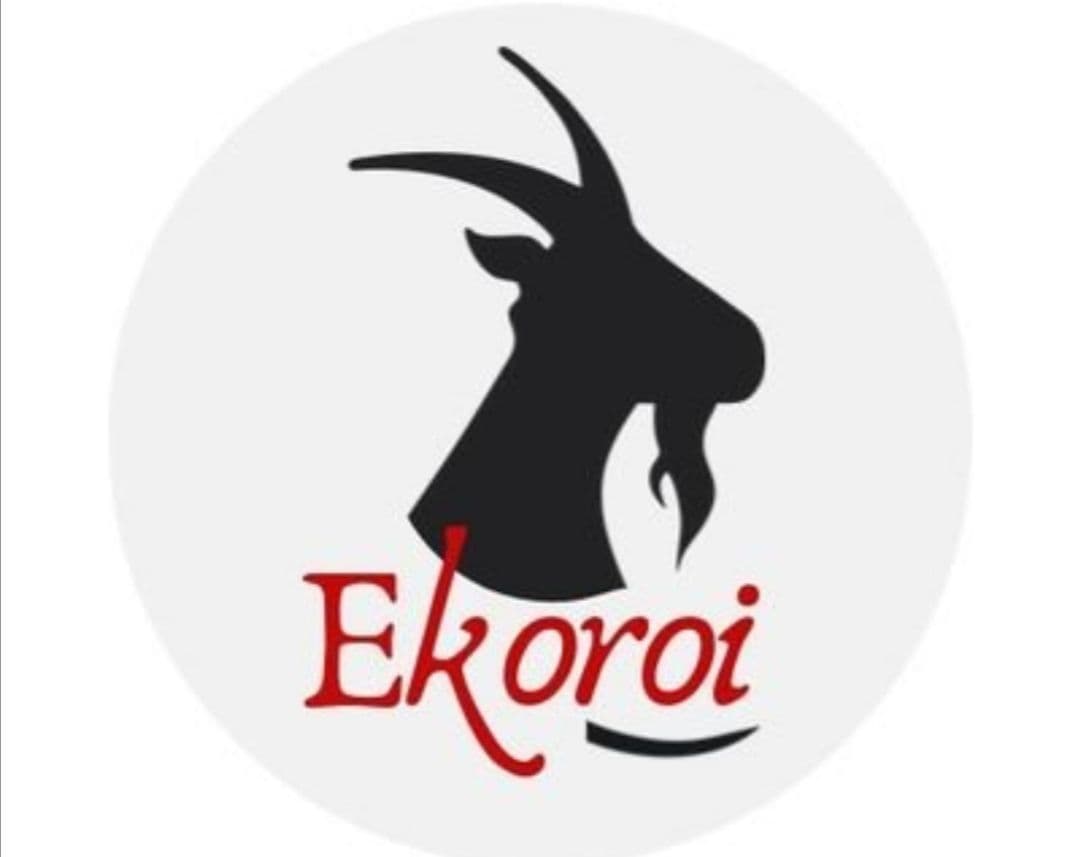The scam that is currently in the minds of Kenyans is the Banda Homes scandal, forget the sh4 million tea by Ministry of Health staff, govt scams us always) where clients who were promised houses in 2019 are still waiting for them. The firm which was exposed by Citizen TV recently unashamedly blamed COVID-19 for falling behind schedule. This was a blatant lie as COVID-19 only started in December 2019 when the project was supposed to have been long completed.
Banda Homes, Gakuyo Sacco etc, are not the first in Kenya’s history. This article will capture some of the darkest moments in Kenya’s history as pertains to being duped/ scammed/ washed. The 34 instances where scams have been run on Kenyan soil below:
1. Public Likes
Public Likes grabbed the attention of new investors by offering them short-term returns that are abnormally high. Users were told that they could earn money, merely by clicking on ‘adverts’.
Not only was Public Likes a Ponzi Scheme, it was also part of an intricate online fraud that has seen advertisers lose close to Sh2 trillion annually in advertising revenues. Kenyans lost billions.
2. Kirinyaga farmers
In 2016, traders in Kirinyaga County, among them hawkers and boda boda riders lost Sh10.8 million to Small Traders Initiative and Empowerment Programme, which claimed to be a microfinance only requiring daily deposits of Sh200.
3. Simple Homes
31 year old Nuzrat Sharif and her husband Yasin Abubakr Kodhek alias Eugene Kodhek, swindled unsuspecting Kenyans out of over Sh500 million in a scam dubbed “Simple Homes”.
According to criminal intelligence wing of police – DCI, the suspects lured victims to invest in a business known as Monetized Cars Ltd.
After receiving money from unsuspecting Kenyans, the company closed shop and went under, said the DCI via its official Twitter handle.
The DCI further said Ms Sharif had tricked her mother, Nurjahan Mohamed, aged 52 years, to open various companies namely Proop Tellub Ltd (Bullet Proop), Dinm Evitaerc Ltd (Creative Mind), Kehdok Saniwagra Igniwga (Agwingi Argawings Kodhek), Rkab Uba Nisay (Yasin Abubakr) and EOAH.
4. Gakuyo Real Estate and Ekeza Sacco
Reverend David Kariuki Ngari, a purported man of the cloth, a businessman and a politician scammed Kenyans in the Central Kenya region billions of monies through his real estate venture before it collapsed in 2018.
The man had used vernacular radio stations in that region to sell the dream of homeownership to unsuspecting buyers who deposited money into his doomed Sacco.
Many had believed him because they had seen him on television exorcising demons from people at Calvary Chosen Centre Church in Kiandutu slum in Thika.
The man of God made away with over sh1.5 billion belonging to some 78,000 members , many of them peasants.
5. Maalim Group
Earlier this year (March 2020), Maalin Group Companies headed by Abdalle Mohamed Ali and running a forex trading business in Nairobi collapsed with what is said to be Sh15bn in funds.
Thousands of Kenyans and foreigners who fell for the fraud and invested their money in the scheme are now staring at the risk of losing their life savings.
Source: People Daily Online
6. Goldenscape
This venture was promising save for COVID-19, or so we might think. Founder Peter Wangai had launched Amal Investments late last years when the company Goldenscapes Greenhouses was already struggling.
That time they had announced on Citizen TV, “Goldenscape Greenhouses and Silverstone properties on Wednesday launched a real estate investment of Ksh.1.65 billion to their existing greenhouse investors dubbed Amal Haven investments”
Kenyans lost millions of their hard-earned cash after being lured to invest in greenhouses in Ol Kalou and Nyahururu and other places by the suspect and his proxies.
Wangai was arrested in March 2020.
The other losses from such ventures brings up the names of such companies as Property Reality Company Limited (PRC)
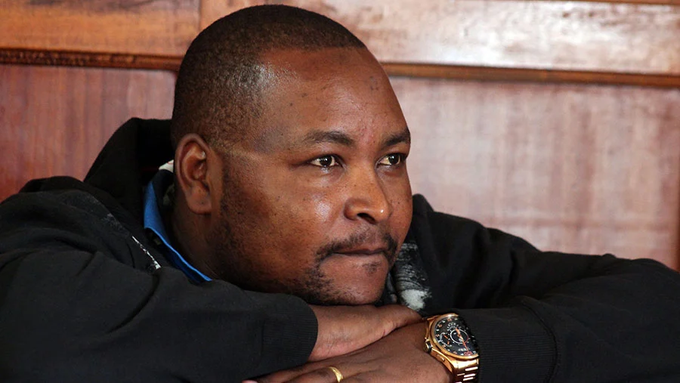
7. Cryptocurrency Scams – Velox 10 Global
A story is told of one, Ruja Ignatova, who was fondly known as the Cryptoqueen who run the cyptocurrency venture known as One Coin, she was so famous, speaking in seminars worldwide, then suddencly as she appeared, she disappeared, with 15 billion dollars of clients money.
In Kenya, the cryptocurrency mostly Bitcoin craze hit hard and some people burnt their fingers. A Brazilian con Ricardo Rocha working with some unscrupulous Kenyans dissapered with millions of shillings from gullible Kenyans.
Some Kenyans are in court seeking to be refunded their money, however, Rocha who was arrested in Kenya was let go after a brief stint in jail. His Kenyan connect Daniel Karobia Gichuki was charged in 2019 with obtaining money by false pretenses.
8. Diamond Property Merchants
In 2018, agribusiness venture, Diamond Property Merchants lost over sh500 million shillings belonging to 700 clients.
The project at the center stage is Bethany phase 3 that sits on a vast land in Kajiado County. Each customer bought an eighth of land each at a cost of Sh 450,000. Furthermore they were required to remit extra Sh 290,000 for helping to construct and erect green houses erection. After completion and at the end of every year, each investor was to receive Sh 200,000 yearly.
More than 700 members are yet to receive the money.
Source: Standard Newspaper

10. Suraya
For a company that started in the early 90s as a fashion designer, Suraya was brought once again in the limelight in 2019 as a scam after investors failed to realise their dreams of owning a house as promised by the firm.
Suraya Property Group took billions of cash from potential investors promising them apartments.
Here the money involved run into billions as most investors were high-end people living abroad and in Kenya.
There Sucasa property offering, deep inside Mlolongo was reportedly even hard to find for those who wanted to be sure that their houses are being constructed.
Well, Suraya after a barrage of online criticism and hashtags from investors who wanted the Directorate of Criminal Investigations (DCI) take over the matter, decided to publicise that they have received a sh16 billion loan from a bank and that their projects are on course.
That’s a drop in the ocean compared to the billions taken in investor deposits and unpaid bank loans. Case in point Lynx Royal, another Suraya Property, just went on auction today. This after Suraya pocketed millions. #StopSurayaSwindle #surayapropertysham https://t.co/3M4FHfvqDN pic.twitter.com/8n5hnnPWJy
— frustratedsurayainvestors (@sufferingsuraya) June 10, 2019
It all turned out to be PR.
11. Dinara Properties
In 2015, Dinara Properties with Mazuri Side I apartments in Thika pulled off an elaborate scheme on Ms Roseteller Okubo and her husband Yufnalis Okubo, both directors of Malcedian Properties Ltd
The firms seemed to have redeemed itself but a keen Kenyan noted this in May 2020:
Dinara Properties of which Andrew Kamau is a director have not finished the houses in Makongeni Thika, called Mazuri Apartments despite full payment by clients in 2015. They closed their offices, and phones don’t work. No way to be able to follow up with them.
Source: Daily Nation
12. MICHELE BALLARIN
If there is a day Homa Bay Governor Cyprian Awiti would wish to forget, it has to be when he signed a deal with a company associated with the mysterious Michele Lynn “Amira” Ballarin in 2013. Few months after Awiti had been sworn in, his administration fell for an idea from an investor who wanted to build an agri-city consisting of farms and low-cost homes, a project that would cost Sh560 billion. Through Oasis Group International, a company associated with Ballarin, Homa Bay could also see roads built using cheap but durable technologies. Several of her Nairobi contacts accompanied her whenever she went to Homa Bay to pitch the idea. In the end, the county government paid Sh110 million but no project was executed. Homa Bay MCAs questioned the Sh110 million payment when the tender documents indicated a different company, Berenyi Inc, rather than Oasis. Early last year, the Sunday Nation reached Berenyi CEO and founder Tony Berenyi who said he was “never paid a cent”. In February 2016, the government deregistered Oasis Group International, with State sources saying it was due to security concerns as there was an unexplained link between Ballarin and Somali pirates.
13. JOSHUA WAIGANJO
When a Naivasha magistrate jailed the burly Joshua Karianjahi Waiganjo for five years for impersonating an assistant police commissioner, Kenyans were hardly surprised. This is a man whose daredevilry as a fake police officer had sent tongues wagging since he was busted in 2013. When Senior Resident Magistrate Shadrack Mwinzi sent him to the gallows in October 2015, it was just a confirmation that Waiganjo’s antics were not make-believe. This is a man who had the audacity to accompany senior officers in an helicopter after an attack in Baragoi, arrest and assault workers at a club in Njoro, inspect a guard of honour by Kenya Forest Service guards during a graduation ceremony at Londiani, order a new Land Cruiser for Njoro Police Station, control transport during the burial of Kenya’s 8th Vice-President Kijana Wamalwa among others. Waiganjo now wants to be the Njoro MP.
Joshua Waiganjo is said to have been arrested yesterday after being outside past the curfew hours.
14. ALNOOR KASSAM
He was a Kenyan-born, short bespectacled bold headed man who walked with a limp. Not many younger Kenyans have an idea who Alnoor was but behind his name was a brilliant and innovative investor who together with his brother Igbal Kassam started Trade Bank in the 1980s. To attract depositors, the bank offered simplified account opening procedures and one only required an ID card and a passport size photograph. Other banks required letters of introduction, pay slips among other documents. At Trade Bank Centre, now Integrity Centre, the bank operated drive-in 24-hour services. In 1993, the bank collapsed like a pack of cards on alleged insider trading and unsecured loans advanced to Kanu era politicians. Depositors lost millions and Alnoor fled and settled in Canada. In 2010 he lost an election to become Mayor of Calgary in Alberta.
More on Trade Bank: How illegal deals left Trade Bank without Cash
15. Baracuda Airways
Baracuda Airways Director John Odhiambo Majiwa conned jobseekers sh9.7 million promising them training in Dubai and South Africa. He was arrested and taken to court in February 2017.
They had lied to pilots and people who wanted to work as cabin crew.
Kimeria Boddie Maina was the CEO of the company.
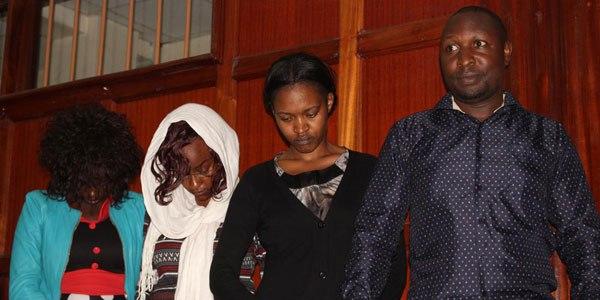
16. KAMLESH PATTNI
At only 25, he masterminded one of Kenya’s biggest thefts from the public coffers. The architect of Goldenberg scandal, Pattni took advantage of the government’s export compensation scheme to swindle taxpayers of more than $600 million (Sh60 billion) in just three years. Son of a Mombasa gold jewellery dealer, Pattni was hardly known as he and his brother ran a small jewellery outlet along Nairobi’s Dubois Road. He later moved to Mageso Chambers in Moi Avenue where Goldenberg International Ltd and Exchange Bank Ltd were hatched to become the face of the scandal. It still remains a mystery how he came to enlist spy chief James Kanyotu as a director and promoter of the two companies. The company was to import and export all types of minerals and in return receive compensation but the entire deal was a co-ordinated scheme to swindle the government. He capitalised on desperate politicians hungry for cash and reckless economists and administrators.

17. Nurucoin
Another cryptocurrency that scammed Kenyans was NuruCoin.
In 2018, Nurucoin was launched with much fanfare The new cryptocurrency, dubbed Nurucoin, has been developed by the owners of e-commerce platform BlazeBay, itself a subsidiary of Churchblaze Christian Association.
Not long after, the mining operation came to a screeching halt… “Police are investigating a man calling himself pastor (Isaac Muthui), accused of conning thousands of Kenyans Sh2.7bn under the guise of investment in a virtual currency scheme.”
18. Grace Aluma
In 1982, Ugandan Grace Aluma arrived in Nairobi masquerading as a billionaire. She told her gullible victims that she was engaged in uranium business and was scouting for big deals.
She told her gullible listeners that she was engaged in uranium business and was scouting for big deals with the US government, one of her customers.
Top names, including politicians, fell for that ruse and hoping to have a share of the $100 million (Sh8.6 billion at current exchange rate) which Aluma claimed to have in a Kenyan bank.
For those doubting her, she would flash some obviously forged documents as she collected money from various institutions eager to do business with her.
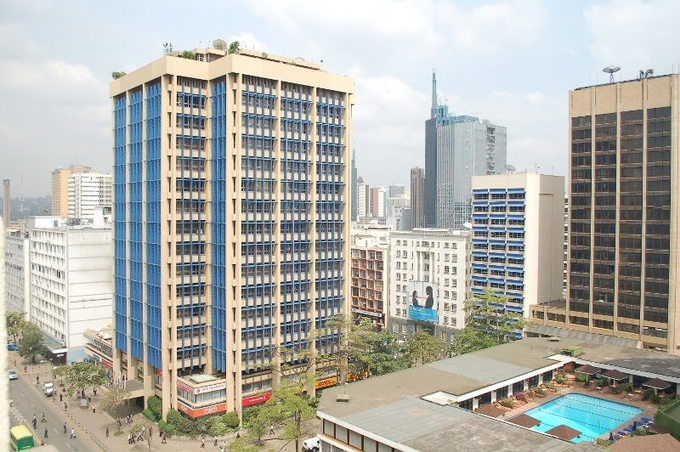
As an “investor”, she had managed to sell her story to some diplomats and was on the verge of selling International Life House to a diplomatic mission when she was smoked out.
But that was not before she had conned Kenya Commercial Bank, Swissair, Westlands Motors, UN consultant Dr Victor Johnson and Bahati MP Fred Omido of significant amounts of money.
Aluma was later jailed for two years on a charge of fraud and conspiracy to defraud a city bank of Sh100,000.
Source: Daily Nation
- GENERAL MATHENGE, the Ethiopian farmer
Lemma Ayanu was a victim of this con just as were millions of Kenyans.
Amid his government’s and his own protestations, he was flown into Kenya in May 2003 as the missing Mau Mau leader, General Mathenge.
Top leaders had congregated at the Jomo Kenyatta International Airport to witness the arrival of Gen Mathenge.
Ayanu was accompanied by four of his relatives and for days, former Mau Mau leaders dismissed his credentials.
He could not speak Kikuyu language and only spoke Amharic.
Ethiopian Embassy insisted that Ayanu was an ordinary farmer and wondered why the Kenya government was carrying a DNA test on him.
At the end of the Gen Mathenge episode, the government had spent about Sh1.5 million in accommodation, transport and meals.
20. Fountain Enterprises Programme (FEP)
Thousands of Kenyans both at home and abroad put their savings in Fountain Enterprises Programme (FEP) and, 12 years later, they are yet to receive their dividends. It got so bad, diaspora was reaching out to both DCI and FBI to investigate.
The guy, John Kithaka, who is said to have come with a silver tongue, a bible and hope, sold false hope
Source: Daily Nation
21. MIRACLE BABIES
In 2004, Mrs Eddah Odera, 56 and post-menopausal, claimed to have given birth to 13 “miracle babies” between 1999 and 2004 with no contact with a man.
The miracle babies turned out to be part of a major human trafficking syndicate involving two clinics in Nairobi, Mrs Mary Juma Deya and her husband Gilbert Deya, who lived in the UK as a “Pastor.”
Mrs Deya and her accomplices were later jailed.
22. Clip Sacco
Using a Nairobi law firm, Iseme, Kamau & Maema Advocates, Peter Alfred Ndakwe, the chairman of Clip Investment Sacco, registered the 2 shell companies in Panama to hide the ownership of 11 local companies.
Mr Ndakwe was an author of several Christian books whose born-again credentials endeared him to the pyramid scheme victims. He also ran another company, Kings Script Publishers Ltd. Ndakwe was accused by 5,846 victims of fleecing them of more than Sh1.9 billion. Clip was the second largest pyramid scheme after Deci — founded by George Odinga Donde and Mary Odinga — which took Sh2.4 billion from its 93,485 members.
23. DIBLA AMELIA, the Queen of Sheba
When Dibla Amelia George arrived in Nairobi in the first week of December 2001, she booked herself at the Grand Regency and told those who cared to be conned that she was the Queen of Sheba.
She said she had come to Kenya in search of diamonds.
She was booked by the family of some drug baron into the Presidential suite.
From here, she called a press conference, which was widely covered, to announce that she was seeking opportunities to invest Sh15 billion.
At the Regency, she had accrued a bill of Sh3.4 million, and the hotel security refused to let her leave until she cleared.
Her friends tried to intervene but she ended up before Nairobi Magistrate who released her on a Sh500,000 bond.
On the night of January 30, she was whisked to the airport and the Queen of Sheba disappeared.
24. Honorary degree scam
Prof Clyde Rivers, Chancellor of Educational Development Worldwide who in 2010 was liberally handing out PhDs to anyone willing to pay between $2,500 to $6,000 for the honor.
His clients include many notable names such as Uganda first lady Janet Museveni, Uganda president Yoweri Museveni, Zipporah Kittony, Kalonzo Musyoka, Kenneth Marende, Burundi President Pierre Nkurunziza, Fmr Nigerian President Olusegun Obasanjo Fmr Mozambican President Joaquim Chissano.
Source and more: Honorary degrees raise eyebrows
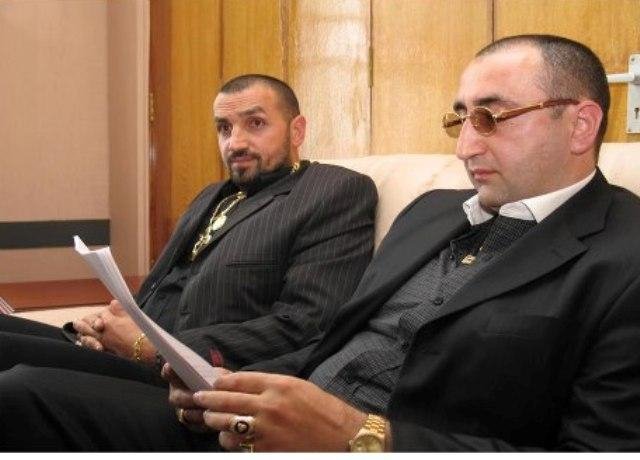
25. ARTUR BROTHERS
The Artur brothers. They were implicated in the raid on the Standard Media Group. PHOTO/FILE
In 2006, two Armenians arrived in the country and managed to hoodwink everyone.
Mr Artur Margaryan and Mr Artur Sargsyan were international criminals.
They had managed to worm themselves into the Kenya security system and got “appointed” as Deputy Commissioners of Police.
They had VIP passes for JKIA and wined and dined with the powerful.
They had a house in Runda where they threw overnight parties, drove diplomatic cars and carried pistols openly.
They were implicated in the raid on the Standard Media Group.
After they went berserk at the airport and assaulted immigration officers, President Kibaki sacked the CID director Joseph Kamau and formed a commission of inquiry.
Also implicated was Winnie Wangui, the daughter of the current Othaya MP, Mary Wambui. Winnie was a girlfriend of one of the crooks.
When police raided their Runda home, they found a cache of guns and ammunition, balaclava helmets and a number of T-shirts branded QRU (Quick Response Unit) which the hooded raiders at The Standard Group offices wore.
26. Ala Najat Marine Shipping
In 2001, Ala Najat Marine Shipping asked Kenyans to pay Sh9,500 for registration, medical examination and passport was no big deal in return for jobs paying US$800+ bonuses.
The deal sounded really sweet. In Parliament, MPs made fervent noise to force the government to speed up the processing of requisite documents such as passports and medical certificates to enable unemployed youths secure the promised 50,000 vacancies.
By the time Labour and Human Resources Development Minister Joseph Ngutu, who had given the deal a clean bill of health announced that there were no jobs after all, at least 10,031 Kenyans had lost a combined amount of Sh100 million.
By the time Labour and Human Resources Development Minister Joseph Ngutu, who had given the deal a clean bill of health announced that there were no jobs after all, at least 10,031 Kenyans had lost a combined amount of Sh100 million.
27. Interweb Global
On Jan 30 2020, Manases Karanja, a director of Interweb Global was arraigned in court charged with obtaining Sh3.7mn by false pretences while promising a 20% monthly commission on funds invested. CMA claimed this was a ponzi scheme & not licensed.
28. World Ventures
In 2016, World Ventures promised discounted dream trips on payment of $199 membership and monthly fees of $54, waived if one enrolled others. Norwegians declared it a pyramid scheme because revenues are from recruitment of members not sale of travel
29. Urithii Housing Sacco
The compnay changed its name to a new one Urithi Premier Sacco after a year (2019) of revelations of how the firm was and is still struggling to get title deeds for its clients, some who had bough land in 2015.
In 2016, Urithi Housing acquired land in Gatanga for Sh1bn from a bank defaulter agreeing to repay the Sh500mn balance in five years. Panorama Gardens was marketed and sold by Urithi as ready plots for immediate development and attracted 400 investors, with an eighth of an acre going for Sh2.25 million. 3 years 70% cleared their balances but no titles were forthcoming and no construction happening.
More: Dream of owning house fails
30. Good Life Savings and Cooperative Society
Obadiah Maina and Rachel Wachira were in September 2019 charged with more than 40 counts of conspiracy to defraud members of more than Sh1bn through Good Life Savings and Cooperative Society. Their SACCO license was cancelled and liquidators appointed,
Ms Wachira and Good Life Sacco founder and chairman Obadiah Maina are accused of stealing over Sh1 billion in deposits by hundreds of members.
In asking for tougher sanctions against the suspects, the prosecution said the managers have been on the run after defrauding hundreds of sacco members of millions of shillings in savings.
The court heard that the accused committed the offences between 2013 and 2015 in Eldoret.
More: Daily Nation
31. Eric Awori, the ‘‘champion’’ reverse driver
Eric Awori pulled one of the most adventurous con tricks ever seen in independent Kenya.
It was in 1985, when he convinced the media that he had driven a car in reverse from Mombasa to Nairobi, then to Nakuru, Rongai and back to Nairobi, hoping to break the world record.
Awori had told the press that he practised on “private roads” and was keen on breaking the world record, then held by American Gerald Hoagland.
Westlands Motors gave him a new Toyota Corolla to drive, while many other sponsors donated in cash and kind as Awori prepared to become ‘‘the first African motorist to hold a world record’’.
“I took it as a personal challenge. If this American could do it, why not me?” he told the press after “finishing” the gruelling journey.
For “achieving” that feat, he was feted at a reception held at the Hilton Hotel, where he received the global award.
He then announced to motor company executives that he planned to set off another world breaking record by reversing a 7-tonne lorry from Nairobi to Mombasa.
For that D.T Dobie donated a giant Mercedez-Benz truck which was to be loaded with building materials donated by Mombasa traders for building a new Harambee classroom.
DT Dobie also donated fuel worth Sh10,000, while Daily Nation reported that “Mr John Miller, an independent adjudicator for Guinness Book of Records”, had arrived in Nairobi.
Awori said he planned to leave Mombasa on December 11 and arrive at Uhuru Park on December 12 during the Jamhuri Day celebrations.
Assistant minister Sharrif Nassir flagged off Awori on the night of December 11, but nobody knows what happened after that.
Telex messages were sent to Kenya News Agency on his progress and final arrival in Nairobi.
The last one was from “John Miller” from the Guiness Book of Records “confirming” that Awori had broken another record.
After being celebrated as a Kenyan hero, Awori announced that he was now going to attend the “620-km Kiwi Auto Reverse Rally” in New Zealand’s Newbury Ranch Farm.
The Daily Nation captured the moment he arrived: “A tired-looking Eric Awori and his service crew arrived in Auckland, New Zealand, yesterday morning, where a crowd of about 5,000 enthusiasts of reverse drive were waiting to give him a rousing welcome….
Awori spent about one hour at the airport chatting to the crowd and signing autographs before going to his hotel.
Over 3,500 copies of Daily Nation with Awori’s profile found their way to Auckland yesterday and all copies sold out within half an hour of arrival. More copies have been ordered from Nairobi…”
Daily Nation was one of the sponsors who had lined up to support Awori.
On February 10, 1986, a telex was sent to the newsrooms confirming that “Awori has re-written motoring history by becoming the first African driver ever to win a contest in a European country.”
The papers reported that he had driven his Kenyan assembled Toyota Corolla, and won after driving in reverse for 31 hours 55 minutes “through some of the most rugged murrum and tarmac roads in Auckland.”
He had been “assisted by two Gikomba Jua Kali mechanics 60-year-old Mzee Peter Kuria and Ali Omar”.
But something was not adding up.
There were no photos and the New Zealand High Commission in Nairobi said there was no such event.
Summoned by Daily Nation editors to prove he went to New Zealand, Awori failed to table photographs.
The CID arrested him later and charged him with fraud.
What emerged later was that the truck was actually not driven in reverse from Mombasa.
There was nobody from Guinness.
Awori did not travel to New Zealand.
All the telex sent came from a Nairobi office on Mama Ngina Street where Awori coordinated his lies.
In the few months, he had received air tickets, money, hotel accommodation and gifts worth thousands of shillings.
He was also a celebrity.
32. DICK BERG and the All Africa games
In 1987, Kenya hosted the All Africa games that saw the building of Moi Sports Complex, Kasarani.
During the preparations, one Dick Berg, a US citizen, arrived in Nairobi and told ministry officials that his firm, Berg and Associates, could help collect over Sh224 million for the Nairobi games, having achieved a similar feat for the Los Angeles Olympics in 1984.
Unfortunately, nobody checked these facts.
Berg was granted exclusive business rights to market the games and brought on board Coca-Cola and House of Manji among other companies.
According to Henry Kosgey, then minister of Culture and Sports, they did not know that Berg was “an international crook.”
While he was to market the games internationally, the ministry only received Sh5 million before Berg fled out of the country without submitting the final accounts.
He later claimed that he feared for his life and that was the last Kenyans heard of him and the promised Sh224 million.
33. Mohammed Khashoggi, the fake Saudi billionaire’s son
He told his victims that he was the son of Saudi billionaire Adnan Khashoggi – and that appeared to work.
The 34-year-old Kenyan trickster left an astonishing trail of victims of his wily ruses in Mombasa, Nairobi and London.
British newspapers thought his real name was Fred Achieng’, but nothing else was known about this man who always spotted a Yasser Arafat-style kaffiye and spoke with a refined accent that made his victims believe he was a senior executive of a multinational company with interests in Europe, the US, Asia, and Africa.
Hotels loved him because he was a big spender.
In some four months in UK, he had accrued bills of £200,000 before he was arrested.
The head of CID, Noah arap Too, later admitted that Mr “Khashoggi” once posed as a security intelligence agent before three five-star hotels took him in, thinking he was an international pianist.
And the man was indeed a talented pianist.
In the 1980s, he was employed as a cabaret artist, and he managed to swindle hundreds of tourists and establishments.
It took the management of one prestigious hotel the whole of 1994 to discover that the man they had contracted to play the piano was a confidence trickster.
In Mombasa, he targeted affluent but gullible business people. Many thought he was a genuine clearing and forwarding executive who could help at the Mombasa port.
The son of a former Permanent Secretary, he booked himself in a presidential suite of a hotel where he accumulated a bill of Sh150,000 before telling managers that they would be paid by Kanyotu International – possibly a reference to the dreaded head of Special Branch, James Kanyotu.
It was from this hotel that he conned a Mombasa businessman of Sh20 million after convincing him that his firm had won a multi-million shilling tender to supply equipment to the Kenya Ports Authority.
He had told the businessman that he (Khashoggi) could help the businessman to procure the equipment cheaply since he had links to crane manufacturing companies in Europe.
In 1988, a British court had convicted the then 26-year-old of fraud and theft and jailed him for four years.
His victims included hotel tycoon Allen Sheppard, then owner of the Grand Metropolitan Hotel Group, who was conned into giving weeks of five-star hospitality to the penniless guest.
The trickster had approached Mr Sheppard to protest at being kicked out of the Grand Met’s Forum Hotel in London’s West End by the doorman.
He convinced Mr Sheppard that arms dealer Khashoggi was his father forcing the hotelier to apologise and order the Forum to roll out the red carpet for the billionaire’s son. The police later discovered that the man was actually a lowly-paid hotel porter!
34. DECI – PYRAMIDS OF PAIN
When George Donde crafted the Development Enterpreneurship and Community Initiative (Deci) in 2006, he told his victims that he would double their cash.
They believed him and they lined up with cash hoping to make a fortune after only three months of investing.
The initial “customers” actually got paid, but that only lured them and more others into the trap.
Pastors and bishops
Deci sold its concept through pastors and bishops – who were the first victims.
They convinced their congregations to put money into the scheme.
Another one, Clip Investment Cooperative Society, was promising to pay 120 per cent interest on money collected from members to finance the publication of a Christian book, Rise up Again.
Others which operated along the same “investment” line included Bright Vision, Jitegemee, Akiba Micro Finance, Acid, Sasanet, Kenya Business, Global, Circuit, Swop Silver Ventures, and Fino.
Of these, the most complex was Sasanet, which had been registered in 2003 to offer premium rate and national payphone services.
It created the Sasanet Investment Co-operative Society Limited, which lured investors to put money into the project.
The majority of investors had contributed between Sh1 million and Sh2 million to have a stake in what was to be a multi-billion shilling venture with high returns.
But it was just hype – a high sounding nothing.
Sources: Daily Nation, Standard Media Group, People Daily online
Ekoroi blog and stories warns that everyone must be vigilant at all times since scams are hatched everyday. Stay safe.
Reach us on contact@ekoroi.com
